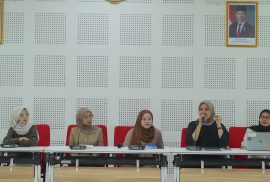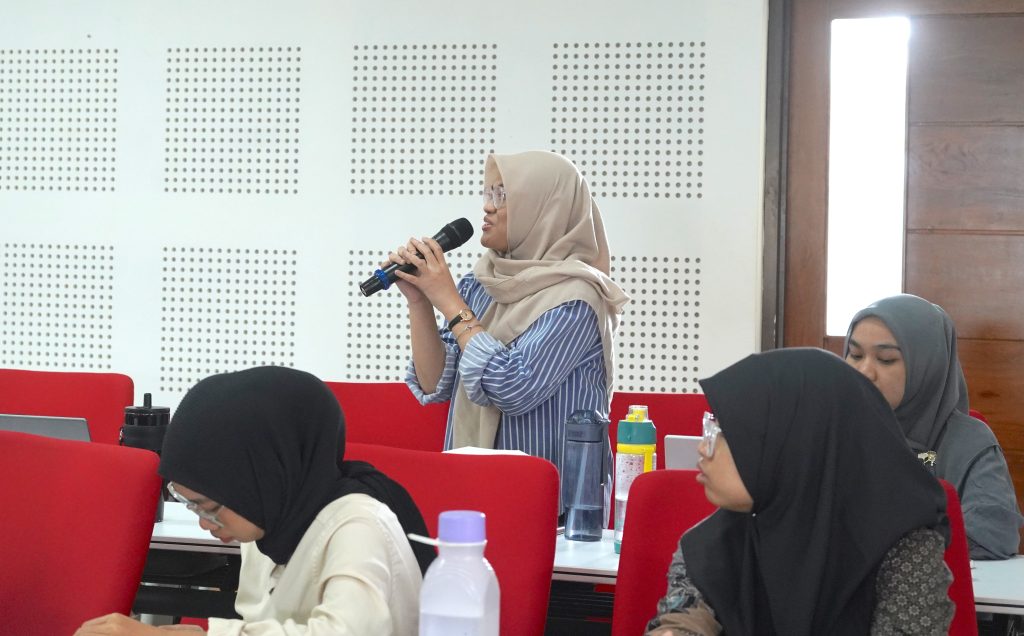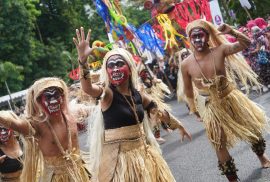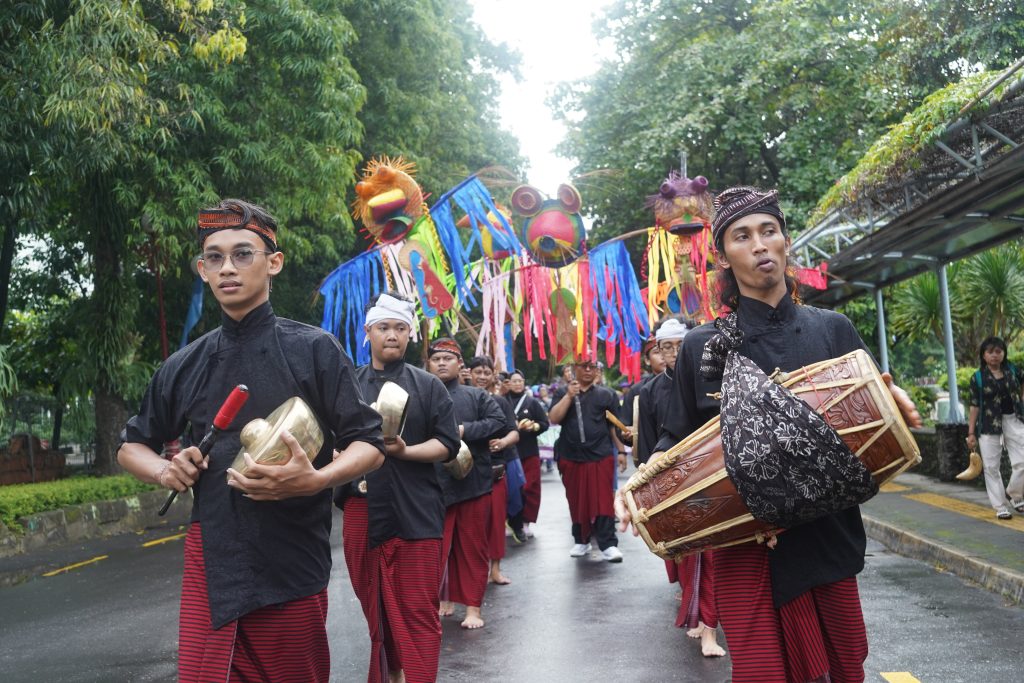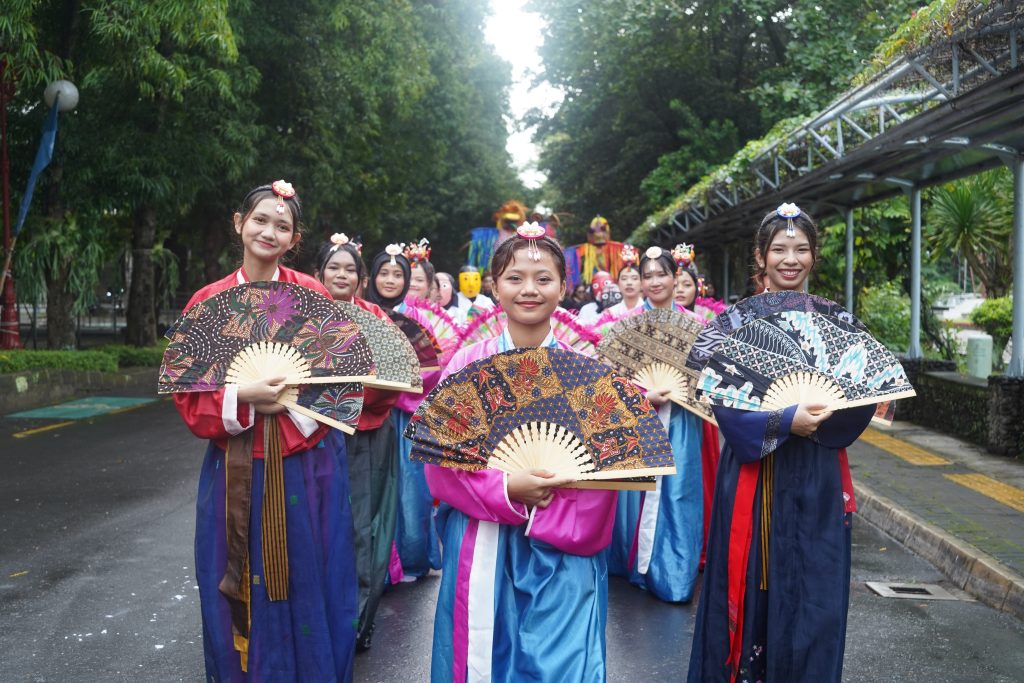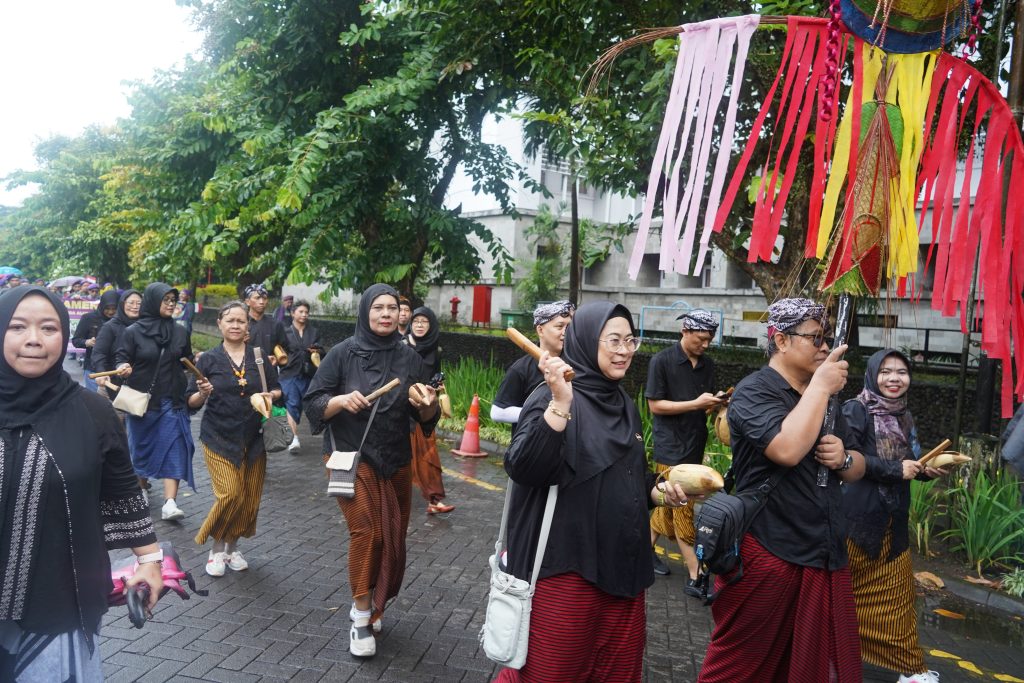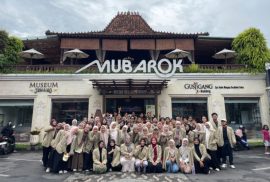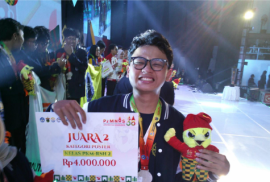Shah Alam, 18 December 2025 – Three students from the Arabic Literature program at Universitas Gadjah Mada recorded notable achievements at the Modern Languages Olympiad 3.0, held at Universiti Teknologi MARA UiTM in Shah Alam, Malaysia. The international competition brought together participants from various countries in a series of multilingual contests, with the main events culminating on 18 December 2025.
In the Arabic Poetry Recital category, Pandhita Hapsari, an Arabic Literature student from the 2023 cohort, won first place and also received the award for Best Script. Another student, Muhammad Hayyi’ Rosyada from the 2024 cohort, secured third place in the same category. Meanwhile, Haris Arfakhsyadz Azka Maula, also from the 2024 cohort, achieved second place in the Arabic Champion Orator category and earned a special award for Best Impromptu Speech. Throughout their participation in Malaysia, the students were officially accompanied by Dr. Zurfa Purnamawati, M.Hum., a lecturer in Arabic Literature at the Faculty of Cultural Sciences UGM, who supported during the competition.
MLO 3.0 was organized by the Academy of Language Studies at UiTM as a language competition featuring four main categories: Malay, English, Arabic, and Mandarin. The event series began with participant registration on 30 October 2025, followed by video submissions for the preliminary round until 6 November 2025. The judging process took place from 10 to 15 November 2025, with the announcement of preliminary results on 18 November 2025. The face-to-face final round was held on 16 December 2025 and concluded with a closing ceremony the following day.
In its official description, the organizing committee stated that the Poetry Recital category is a multilingual poetry writing and recitation competition that encourages expression in multiple languages while celebrating cultural diversity and unity. The Orator Champion category is described as a multilingual speech competition that facilitates the exchange of ideas across traditions, enriching the cultural value of public speaking.
These achievements reflect the students’ strong academic capacity and competitive language skills at the international level. Active participation in global forums of this kind reinforces the role of language as a bridge for intercultural dialogue and highlights the importance of education development that promotes cross-national collaboration for a more sustainable future.
[Public Relations of FIB UGM, Candra Solihin]


